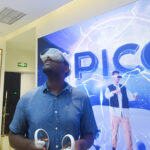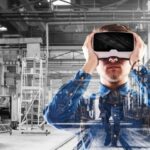Let’s explore 3 types of virtual reality (VR) content and how to leverage them to create immersive learning experiences that play well with your LMS and data analytics needs.
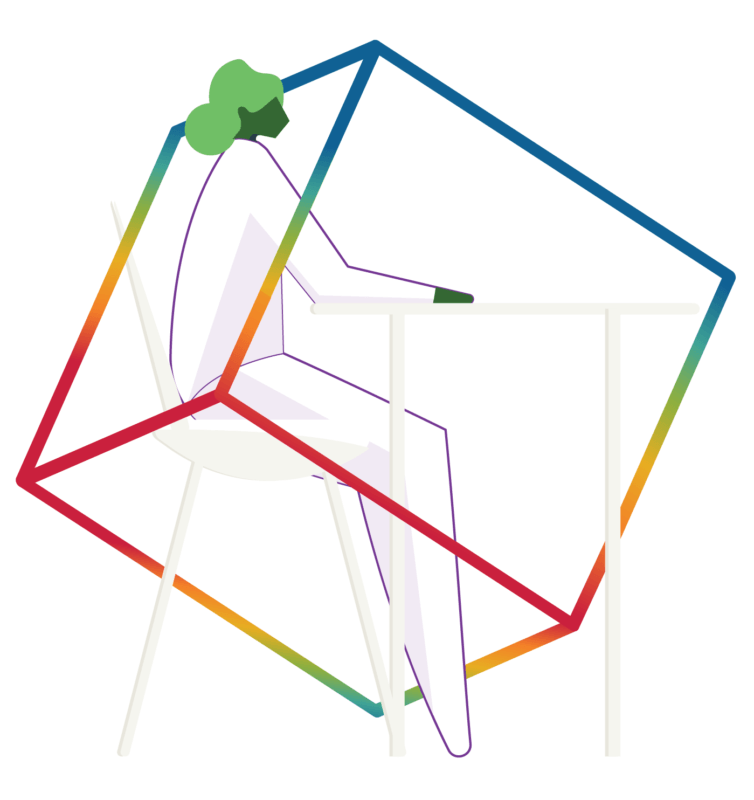
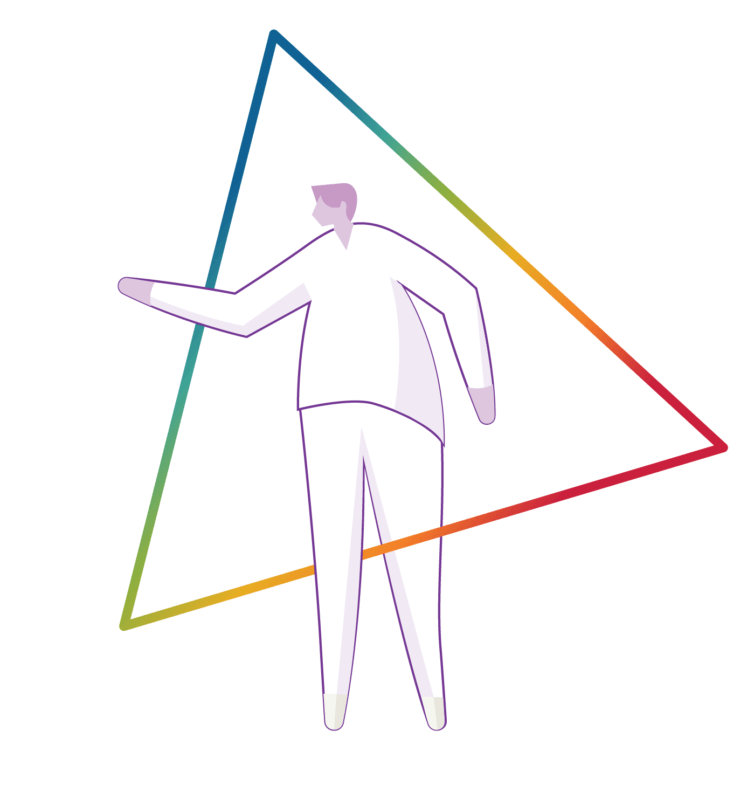
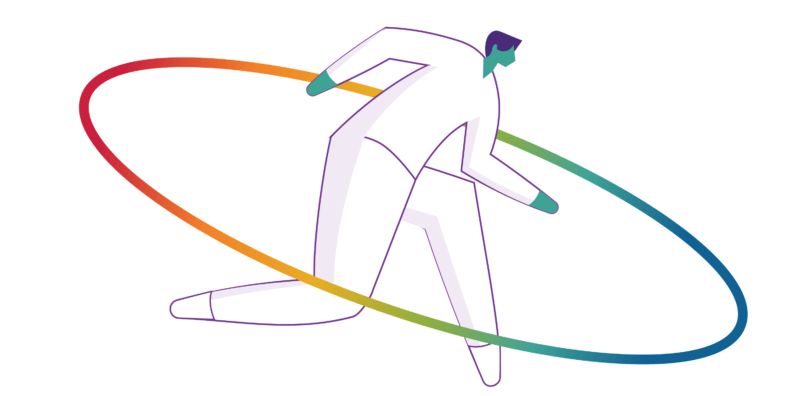
A Tale Of Three Immersive Experience Types
Once upon a time, technical training was the dominant use case for VR. Imagine a digital twin [1] of a manufacturing environment where learners could get the hang of specialized equipment, machinery, and procedures—all without harming people or property.
That’s still a great use case! The safe, immersive practice environment speeds learners‘ time to proficiency, reduces errors, and enhances retention.
But as workplaces and job roles continue to evolve, learning innovators are embracing VR solutions for a wider spectrum of use cases, including nuanced interpersonal skills like empathy and de-escalation.
VR: A Rainbow Of Use Cases
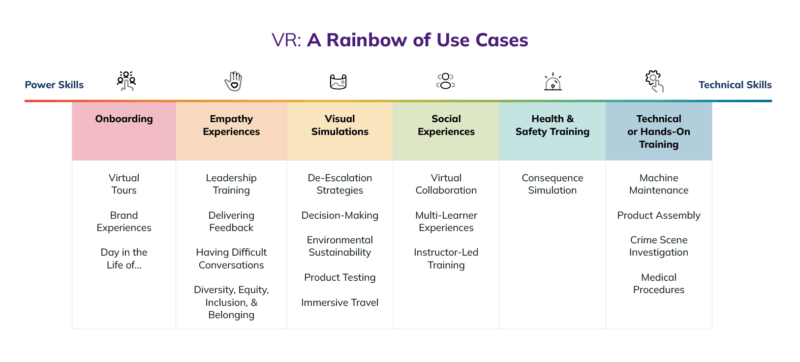
Learners develop these „power skills“ 4x faster in the VR environment than those trained in the classroom, and they apply them in real-life situations with 40% more confidence. [2]
In the most immersive VR learning experiences, features such as voice recognition, movement tracking, and eye tracking can help learners review and learn from missteps. But all levels of immersion can help learners walk (or work) a mile in someone else’s shoes.
Read on for an overview of the three types of virtual reality content and some potential uses.
VR Content: Three Types
We distinguish VR experiences by their level of immersion and the degree of agency learners have within the virtual space.
Passive
Learners observe the environment around them as they’re „taken on a ride.“
Potential Uses: Virtual tours, decision-making simulations
Great for: WebXR experiences and native VR applications
Semi-Active
Learners have more agency to move around and explore the 360° environment.
Potential Uses: Exploration, identification tasks
Great for: WebXR experiences and native VR applications
Active
Learners have complete freedom to move around the 3D volumetric space—and can even physically interact with objects within the environment.
Potential Uses: Active safety applications, equipment repair, hazard training, presentation skills, delivering and receiving feedback, difficult conversations—any interaction for which maximum authenticity and skills transfer are crucial
Great for: Native VR applications
Wondering what these different types of WebXR content look, sound, and feel like? Get an insider’s look with our comprehensive guide.
No Headset? No Problem! Launch Your Immersive Learning Strategy With WebXR
Learning innovator, meet WebXR. Discover how this powerful technology helps you bring immersive experiences to every learner, with or without a VR headset.
Creating WebXR Experiences That Play Well With Your LMS And Data Analytics Needs
Love the sound of putting one (or all three) of these types of content to work? You’re not alone!
Up to this point, L&D innovators like you are all in on the benefits of immersive learning in general—and WebXR’s scalability, effectiveness, and learner-engagement features in particular.
There’s no question that these superpowers make WebXR experiences an asset to any learning portfolio. But even our most future-focused client-partners face a few common challenges to implementation:
- Maybe all learning content needs to live in their organization’s LMS.
- Maybe they need to collect completion and performance data that proves the ROI of their learning investment.
- And maybe they’ve heard the rumor [3] that LMS integration is a thing of the future—or that it’s only been achieved in a few rare, hard-to-replicate instances.
Learning futurists, we assure you: These obstacles are ancient history.
WebXR experiences can live and thrive in an LMS—right here in the present. And the benefits of LMS integration are available to everyone.
No, we haven’t built a replicator (at least not yet!). [4] But we have created a revolutionary technology that makes our client-partners think they’re living in the 24th century.
Meet the WebXR LMS Integration Tool by SweetRush XR. (You can call it LIT.)
LIT’s superpower is making sure no immersive learning solution ever has to stand alone.
Here’s why it’s the ultimate sidekick for your WebXR experiences:
1. LIT integrates easily with other platforms and vendors to allow WebXR experiences to launch directly from your LMS—helping you create a one-stop shop for all of your learning solutions.

2. LIT allows WebXR experiences to launch directly from existing eLearning courses. At launch, it cues learners to choose their device: headset or computer. (We call this choice device optionality.)
Learners then proceed seamlessly to the WebXR experience via their device of choice. Here’s how that looks to learners:
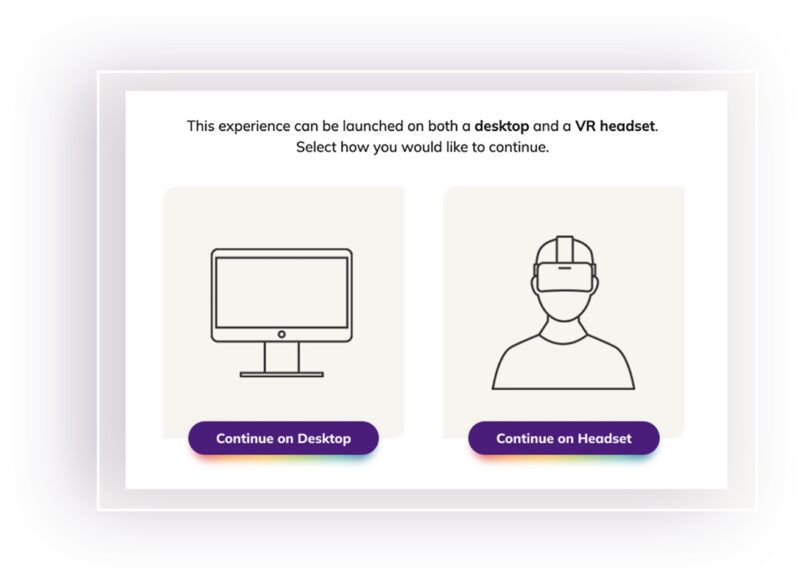
3. LIT shares data between the LMS and the WebXR experience. The WebXR solution „knows“ learners‘ identities and brings their performance metrics back to the LMS, creating a continuous, seamless experience on the front and back ends.
4. The LIT Analytics Dashboard captures and displays complex performance data that the LMS can’t process. We work with you to customize this feature to deliver the learner performance data that matters most. Go beyond completions and seat time with complex learner metrics like tone-of-voice analytics, gaze tracking, and reaction time.
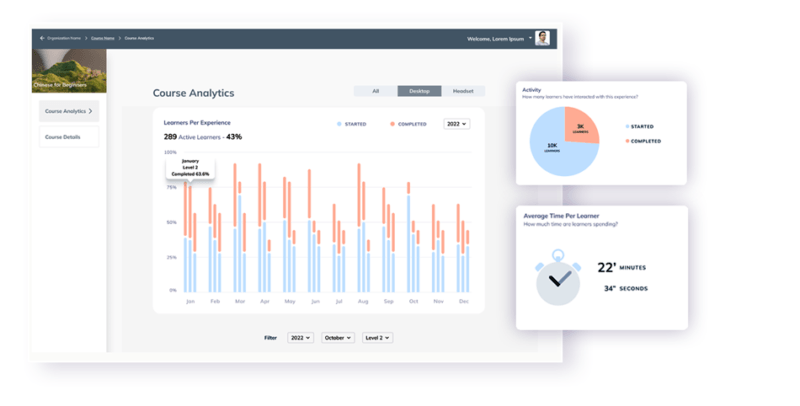
You might be wondering if LIT is compatible with your organization’s LMS.
We want to hear more—but our working answer is „yes!“
We’ve deployed content on hundreds of LMSs, all with their own complexities, quirks, and security protocols. In fact, our specialty—in the words of one client-partner—is building „with, through, over, around, and under“ your current learning ecosystem.
A very LIT show and tell: SweetRush XR experts Adrian Soto and Dani Silver discuss the features and functionality of this transformative innovation in this four-minute video.
Want to learn more about how to create WebXR experiences that live and thrive in your learning landscape? Download No Headset? No Problem! Launch Your Immersive Learning Strategy With WebXR today to get better acquainted with all this innovative technology has to offer.
References:
[1] What are digital twins? A pair of computer modeling experts explain
[2] What does virtual reality and the metaverse mean for training?
[3] Bodyswaps: Innovating Soft Skills Training with Virtual Reality
Quelle:
Foto: Dean Drobot/Shutterstock.com
https://elearningindustry.com/learning-on-the-leading-edge-webxr-lms-and-data-analytics-superpowers

